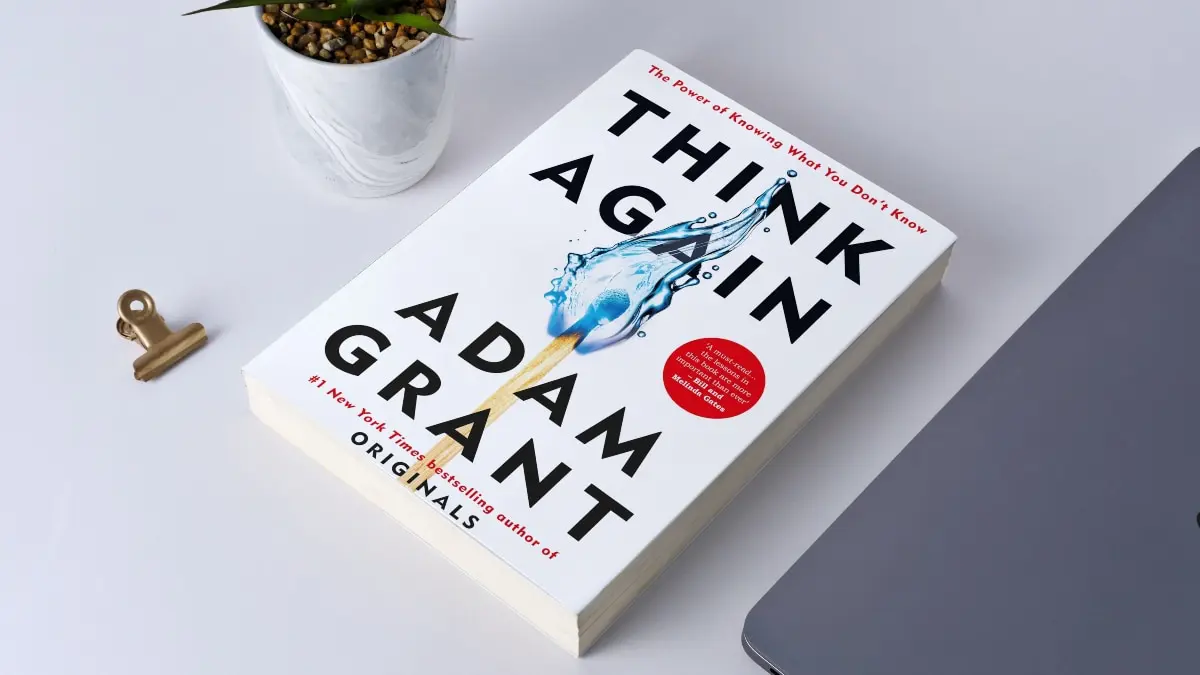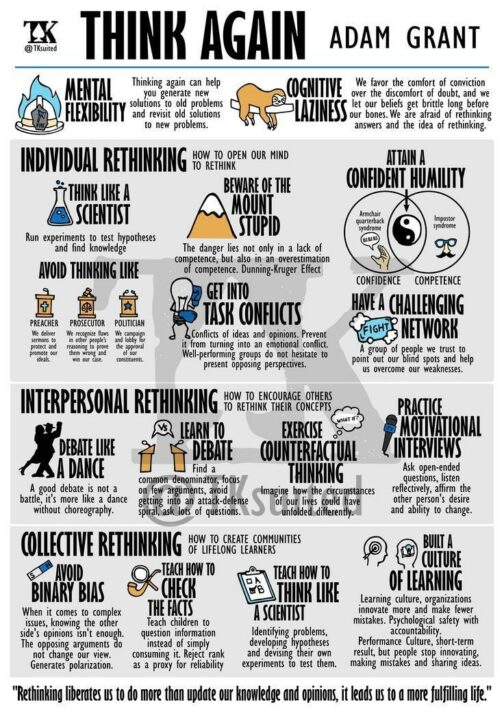
How often do you pause to reconsider your deeply held beliefs or opinions? In his insightful book, Think Again, organizational psychologist Adam Grant argues that in our rapidly changing world, the ability to rethink and unlearn is far more critical than sheer intelligence or clinging stubbornly to initial convictions. We spend ample time forming opinions, but precious little revisiting them. Grant challenges us to embrace the flexibility of rethinking, not just individually, but in how we interact with others and build learning cultures.
He starts by identifying the common mental modes we adopt when our beliefs are challenged:
- The Preacher: We defend and promote our ideas when they feel threatened.
- The Prosecutor: We attack flaws in others’ reasoning to prove them wrong.
- The Politician: We campaign and lobby for approval from our audience.
Grant advocates for adopting the mindset of The Scientist. This isn’t about lab coats; it’s about treating our beliefs as hypotheses to be tested. It involves intellectual humility, active doubt, seeking disconfirming evidence, and crucially, finding the joy in being wrong because it signifies learning. As Grant puts it, “If knowledge is power, knowing what we don’t know is wisdom.”
 (Embracing the scientist’s mindset: Questioning, testing, and rethinking assumptions.)
(Embracing the scientist’s mindset: Questioning, testing, and rethinking assumptions.)
A core theme is achieving confident humility – recognizing our weaknesses while still believing in our ability to learn and improve. This contrasts with both the Dunning-Kruger effect (overconfidence of the incompetent) and imposter syndrome (crippling self-doubt, though Grant notes its potential upside in motivating harder work and better learning).
Crucially, Grant encourages detaching our sense of self from our beliefs. “Who you are should be a question of what you value, not what you believe.” When our identity isn’t tied to being “right” about a specific opinion, changing our minds becomes less threatening and more about growth. Admitting wrongness isn’t weakness; it’s a powerful step towards accuracy and learning.
The book extends these ideas to interpersonal and group dynamics:
- Constructive Conflict: Distinguishing beneficial task conflict (disagreeing about the how) from detrimental relationship conflict. Healthy disagreement requires psychological safety and valuing differing perspectives.
- Influencing Others: Moving away from confrontational debate (“war”) towards collaborative exploration (“dance”). This involves techniques like motivational interviewing: asking open-ended questions, reflective listening, affirming the other person’s capacity for change, and resisting the “righting reflex” (the urge to jump in with solutions). The goal isn’t always to convince, but to help others find their own motivation to rethink. “We won’t have much luck changing other people’s minds if we refuse to change ours.”
- Challenging Stereotypes: Using counterfactual thinking and encouraging perspective-taking to help people examine the origins of biases.
- Building Learning Cultures: Emphasizing psychological safety (where people feel safe to voice concerns and mistakes) combined with accountability. Leaders model this by admitting their own fallibility and seeking feedback. Beware of “best practices” becoming stagnant; encourage continuous questioning.
Think Again is a practical guide filled with compelling stories and research, urging us to cultivate curiosity, embrace doubt, and build networks that challenge our thinking. It’s about making rethinking a regular habit, essential for navigating complexity, fostering innovation, and making wiser decisions in our careers and lives.